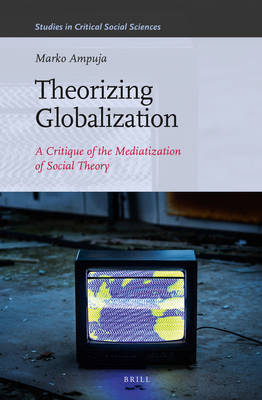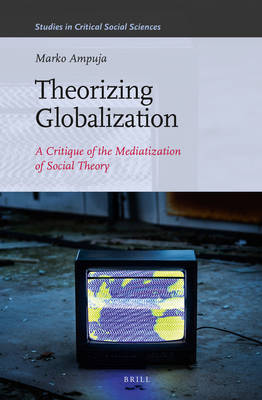
- Afhalen na 1 uur in een winkel met voorraad
- Gratis thuislevering in België vanaf € 30
- Ruim aanbod met 7 miljoen producten
- Afhalen na 1 uur in een winkel met voorraad
- Gratis thuislevering in België vanaf € 30
- Ruim aanbod met 7 miljoen producten
Zoeken
€ 290,45
+ 580 punten
Uitvoering
Omschrijving
Theorizing Globalization offers a reassessment of mainstream perspectives on globalization, a topic that has become enormously popular in social sciences and cultural studies. Instead of recycling common arguments, Ampuja critically examines the works of key globalization theorists such as Manuel Castells and Arjun Appadurai to demonstrate their excessive fascination with recent changes in media and communications technology. The author argues that these and many other theorists' media-centric and unhistorical treatment of globalization stands in the way of a critical understanding of how the global media and modern capitalist societies have evolved. Ampuja concludes with a provocative account of how the hegemony of neoliberalism has affected the positions of globalization theorists and, by extension, the development of social theory in general.
Specificaties
Betrokkenen
- Auteur(s):
- Uitgeverij:
Inhoud
- Aantal bladzijden:
- 424
- Taal:
- Engels
- Reeks:
- Reeksnummer:
- nr. 47
Eigenschappen
- Productcode (EAN):
- 9789004229617
- Verschijningsdatum:
- 25/07/2012
- Uitvoering:
- Hardcover
- Formaat:
- Genaaid
- Afmetingen:
- 160 mm x 239 mm
- Gewicht:
- 771 g

Alleen bij Standaard Boekhandel
+ 580 punten op je klantenkaart van Standaard Boekhandel
Beoordelingen
We publiceren alleen reviews die voldoen aan de voorwaarden voor reviews. Bekijk onze voorwaarden voor reviews.








